
Call 1-833-456-4566 anytime or text 45645 from 4 p.m. to midnight.
- Subject:
- Education
- Material Type:
- Primary Source
- Author:
- Crisis Services Canada
- Date Added:
- 03/26/2020

Call 1-833-456-4566 anytime or text 45645 from 4 p.m. to midnight.

About CMHA Saskatchewan
CMHA SK is a volunteer-based organization which supports and promotes the rights of persons with mental illness to maximize their full potential; and promotes and enhances the mental health and well-being of all members of the community.
The Canadian Mental Health Association, Saskatchewan Division – CMHA SK – is one of the oldest and largest community-based human services organizations in Saskatchewan. We are proud to be part of CMHA National, connecting us with branches all across Canada

This site developed by the Canadian Pediatric Society explores COVID-19 and your child. It includes frequently asked questions and regularly updated information for parents from Canada's pediatricians.
Topics include:
-What are the symptoms?
-I keep hearing of an inflammatory illness possibly linked to COVID-19 in kids. Should I be concerned?
-How can I protect myself and my child?
-What should I do if I think my child is sick?
-My child is due for vaccines. Is it safe to be immunized during the pandemic?
-Will a visit to my health care provider increase our risk of being exposed to COVID-19?
-I just had a baby. Can people come visit?
-When will there be a COVID-19 vaccine for children?
-How can I talk to my child about COVID-19?
-Resources you can trust
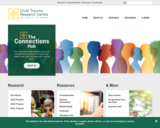
Research. Dissemination. Advocacy. Community.
"The Digital Connections Hub presents evidence-based child welfare research and resources related to COVID-19 and other potential health crises. It facilitates easy access to resources for children and youth, service providers, families and caregivers, governments, and the general public who share a concern for children in care and the wellbeing of children and youth in general."

230 conversation starters to get the conversation rolling!
The starters are for various ages and maturity levels. As the parent, you know your child best and we will leave it to you to select appropriate starters.
-getting to know your child
-your relationship with your child
-family
-blended and adopted families
-values and character
-school and learning
-emotions
-friendships and peers
-bullying
-drugs and alcohol
-consent, love, marriage and sexual preference
-body image and gender roles
-spirituality
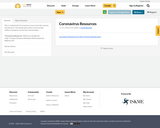
This is a website full of Coronavirus resources for kids, parents, and educators. The website gives advice on how to help children manage the anxiety they may be feeling.
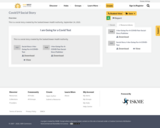
This is a social story created by the Saskatchewan Health Authority, September 24, 2020.

"During times of crisis, it can be a natural instinct to focus our full attention on our teams, and forget to care for ourselves. However, burned-out leaders aren't able to serve themselves or their teams, and will struggle to effectively address the situations at hand.
Maggie Hodge shares a week's worth of daily wellness practices for the mind, body, and soul, to promote creativity, productivity, and wellness."
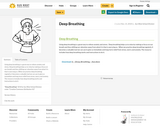
Using deep breathing is a great way to relieve anxiety and stress. Deep breathing helps us to relax by making us focus on our breath and thus shifting our attention away from what it is that is worrying us. When we practice deep breathing regularly, it becomes a valuable tool we can use to give us immediate and long-term relief from stress, worry and anxiety. The resource includes how deep breathing works and instructions to do it.

A Pear Deck presentation to guide talking to kids about Covid 19.
You can download and edit it, or click the picture and use the navigation tools on the bottom left of the picture to go through the slides.

This is an excellent program for teaching young kids emotion identification, regulation, and social relationships.
"Emotional ABCs Classroom is a research-based Social Emotional Learning (SEL) curriculum providing teachers (K–3) with 20 sequential Workshops and extensive classroom support materials for Teacher-led, in-class instruction."
This program teaches:
Self-Awareness
Social Awareness
Self-Management
Responsible Decision-Making
Relationship Skills
"Emotional ABCs Workshops are designed for teacher-led classroom instruction. Your free single user account gives you access to all resources needed to present the Workshops.
All Workshops include a Warm-Up, Mini-Lesson, Activity, Share-Out, and a Self-Reflection, and each can be taught as a 'stand-alone' lesson to target specific skills.
Instructors can teach directly from online Workshops or printable PDFs.
Emotional ABCs Classroom uses a common emotional language throughout the curriculum which can be readily adopted school-wide with minimal teacher training."

Having a family member with a substance use problem can be very stressful and overwhelming. You play a key role in supporting your relative and in promoting their wellness and recovery. Performing this role may take a toll and have a significant impact on you as well. This self-directed online program is designed to empower you as you support your loved one.
This course will help you to recognize the stress and range of emotions you may be experiencing, and to understand the importance of addressing your own needs. The course will also explore strategies you can use to cope with the challenges of dealing with a relative with substance use problems, strategies for self-care and ways to empower yourself.
The course includes 6 modules:
1. Understanding Substance Use Problems and Addiction
2. Impact of Substance Use Problems on Families
3. Supporting Your Family Member's Recovery
4. Communicating Effectively with Your Relative and Setting Limits
5. Staying Safe and Managing Crises
6. Empowering Yourself Through Support and Self-Care

"Support the transition to virtual learning and help students think critically and compassionately about what they see online."
Lessons for a wide variety of grades 3-12 grouped according to:
1. Online communication
2. News & Media
3. Media Balance
4. Cyber-bullying
Also - videos and discussion activities.
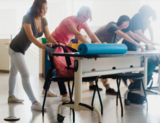
This toolkit unpacks six specific, practical tools that can be used to share yoga and mindfulness with teens/adolescent students.
All six tools prioritize two important objectives:
- How to address common roadblocks that (seemingly) limit teens’ access to yoga and mindfulness, and
- How to liberate and affirm teens’ identities in yoga and mindfulness
Enter your email to download the toolkit.

"Explore.org hosts live streaming videos from all over the world allowing learners to observe a variety of animals in their natural habitats.
The learning extends beyond the classroom offering a portal into the natural world with authentic exposure to a variety of species.
Applications of explore.org can include creating a center activity in which students observe animals in their natural settings to gather and record data as citizen scientists.
As the introduction to an animal research project, this resource can ignite curiosity and encourage further investigation.
Additionally, explore.org can serve as a gateway to compare and contrast different animals among diverse habitats." (AASL)
Observe animals all over the world! Exotic to pets to farm animals!

25 great ideas for family night.
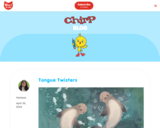
Kids' Social-Emotional Learning
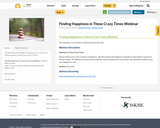
The following is a collection of Happiness Webinars given during school closures on how we can find happiness in these crazy times!

Helping children learn to be smart about feelings can help alleviate their emotional stress, improve concentration, boost their immune system, and enhance brain development. This First Aid for Feelings workbook for children was designed to help do that. By using the simple coping strategies found in this workbook, you can encourage children to express thoughts, questions, and feelings. These life skills may help reduce and manage children’s stress or anxiety, and provide some sense of control within their changing lives.

This article shared by the University of Calgary provides suggestions for how to work from home during this COVID-19 pandemic. Brittany Harker Martin from the Werklund School of Education shares expert tips on how to:
-create workstations
-designate a work-free zone
-take scheduled breaks
-integrate physical
-creative activities, and establish a quitting time